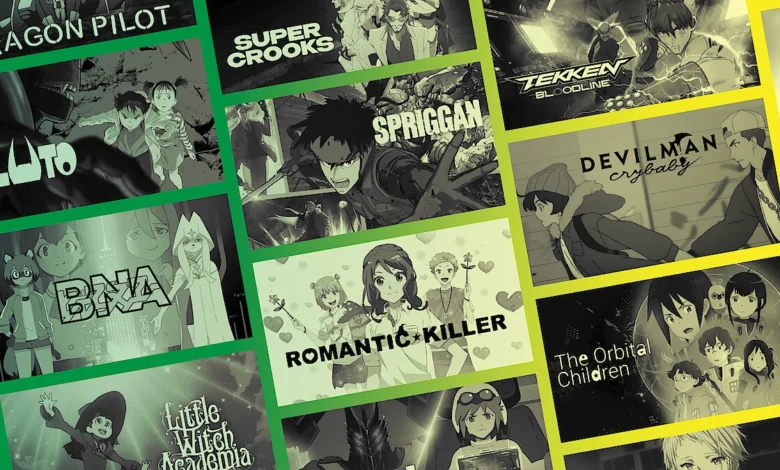Unlocking the Meaning of ‘Aniki’: A Deep Dive into Brotherly Bonds

In a world where connections shape our lives, the term ‘Aniki’ stands out as an embodiment of brotherly love and loyalty. Rooted in Japanese culture, this word transcends its literal meaning to encompass deep emotional ties that can redefine relationships. Whether through shared experiences or unwavering support, the bond between brothers is both powerful and profound.
But what does it truly mean to be an ‘Aniki’? How has this connection influenced various aspects of life—from media portrayals to real-world scenarios? Join us on a journey as we explore the essence of brotherhood encapsulated in ‘Aniki.’ Discover how these bonds are celebrated, challenged, and nurtured across cultures while unlocking a deeper understanding of one of humanity’s most cherished connections.
Understanding the Origin of ‘Aniki’
The term ‘Aniki’ traces its roots to the Japanese language, where it translates directly to “older brother.” However, its significance extends beyond mere familial ties. In traditional contexts, ‘Aniki’ represents a figure of respect and guidance. This bond is often characterized by protection and mentorship.
Historically, older brothers played crucial roles in shaping their younger siblings’ lives. They were not just caretakers but also role models who instilled values and taught essential life skills. In many families, this relationship established a hierarchy that emphasized duty and loyalty.
In modern society, ‘Aniki’ has evolved into a broader concept. It now encompasses friendships and mentor-mentee relationships that mirror those strong bonds found in blood relations. As such, ‘Aniki’ embodies both heritage and contemporary interpretations of brotherhood across diverse settings.
The Importance of Brotherhood in Japanese Culture
Brotherhood holds a special place in Japanese culture, transcending mere familial ties. The concept of ‘aniki’ embodies this deep-rooted connection among brothers and close friends.
In Japan, brotherly bonds often signify loyalty and protection. These relationships are not just based on blood; they extend to chosen families as well.
Japanese anime and manga frequently showcase these dynamics, illustrating how character growth is influenced by such strong connections. Whether through shared experiences or mutual support during challenges, these narratives resonate deeply with audiences.
Moreover, the value placed on brotherhood fosters community solidarity. It encourages individuals to stand together against adversity and celebrate each other’s successes.
This cultural emphasis strengthens social cohesion, reminding people of the importance of unity in everyday life. The essence of brotherhood enriches personal relationships while embedding itself into the broader societal fabric.
Different Interpretations of ‘Aniki’ in Media

The term ‘Aniki’ appears across various forms of media, each offering a unique lens on brotherhood. In anime and manga, it often symbolizes the protective older brother archetype. Characters embody loyalty, strength, and sometimes a hint of rivalry.
Video games also embrace ‘Aniki’, portraying characters who guide or mentor younger counterparts. These relationships add depth to narratives, making players feel more invested in their journeys.
Movies delve into emotional connections tied to ‘Aniki’. They explore themes of sacrifice and love that resonate deeply with audiences.
Even music pays homage to this term. Lyrics highlight bonds between brothers that evoke nostalgia or a yearning for connection.
These interpretations illustrate how ‘Aniki’ transcends mere definition—it embodies complex dynamics found in familial relationships throughout various storytelling mediums.
Real-Life Examples of Strong Brotherly Bonds
Real-life examples of strong brotherly bonds can be found in various communities around the world. Take, for instance, the story of two brothers who started a small business together after their parents’ passing. Their shared experiences and mutual support helped them not only thrive but also navigate life’s challenges hand in hand.
Another heartwarming example is seen in sports teams where teammates often refer to each other as “brothers.” This bond fosters trust and camaraderie, essential for teamwork and success on the field.
In some cultures, elder siblings take on roles akin to mentors. They guide younger siblings through life’s hurdles, providing wisdom gained from experience.
These connections illustrate that aniki transcends mere blood relations; it embodies loyalty and unconditional love that can shape lives positively.
Challenges and Benefits of Having an ‘Aniki’
Having an ‘Aniki’ comes with its set of challenges. Expectations can be high. The pressure to live up to the bond may sometimes feel overwhelming. Disagreements are natural, and navigating these conflicts requires patience and understanding.
On the other hand, the benefits are profound. An ‘Aniki’ offers unwavering support during tough times. This relationship fosters a sense of belonging and loyalty that is hard to replicate elsewhere.
The shared experiences create lifelong memories. Whether it’s celebrating achievements or facing setbacks together, having an ‘Aniki’ means never walking alone.
Furthermore, this bond often encourages personal growth. An older brother figure can inspire you to push your limits while offering guidance along the way.
Balancing these aspects shapes a unique dynamic filled with lessons in love and resilience.
How to Cultivate a Strong Brotherly Relationship
Building a strong brotherly relationship requires intentional effort and open communication. Start by making time for each other. Whether it’s sharing hobbies or watching movies, these moments create lasting memories.
Listening plays a crucial role in any relationship. Show genuine interest in your brother’s thoughts and feelings. This fosters trust and understanding.
Don’t shy away from vulnerability. Sharing personal experiences can deepen your bond significantly. It shows that you value each other’s perspectives.
Celebrate achievements together, no matter how small they may seem. Acknowledging successes strengthens support systems between brothers.
Be there during tough times as well; offering help reinforces loyalty and commitment to one another.
Embrace fun! Light-hearted activities can break the tension and promote laughter — essential ingredients in any strong relationship.
Conclusion: Embracing the Power of ‘Aniki’ in All Relationships
The concept of ‘Aniki’ resonates deeply within various relationships, transcending the traditional meaning of brotherhood. It embodies loyalty, respect, and a unique bond that can be cultivated in different forms.
As we’ve explored, ‘Aniki’ is not just about blood relations. It represents the strength found in friendships and camaraderie. Whether through shared experiences or mutual support during tough times, embracing this spirit can enrich our lives in countless ways.
Cultivating an ‘Aniki ‘-like relationship involves open communication and genuine emotional investment. It’s about being there for one another and fostering trust over time. This powerful connection encourages growth on both sides.
Whether you identify as a biological brother or a close friend acting as one, embodying the essence of ‘Aniki’ can transform your relationships into something extraordinary. The bonds we forge matter profoundly—let them reflect the depth that ‘aniki’ signifies.





